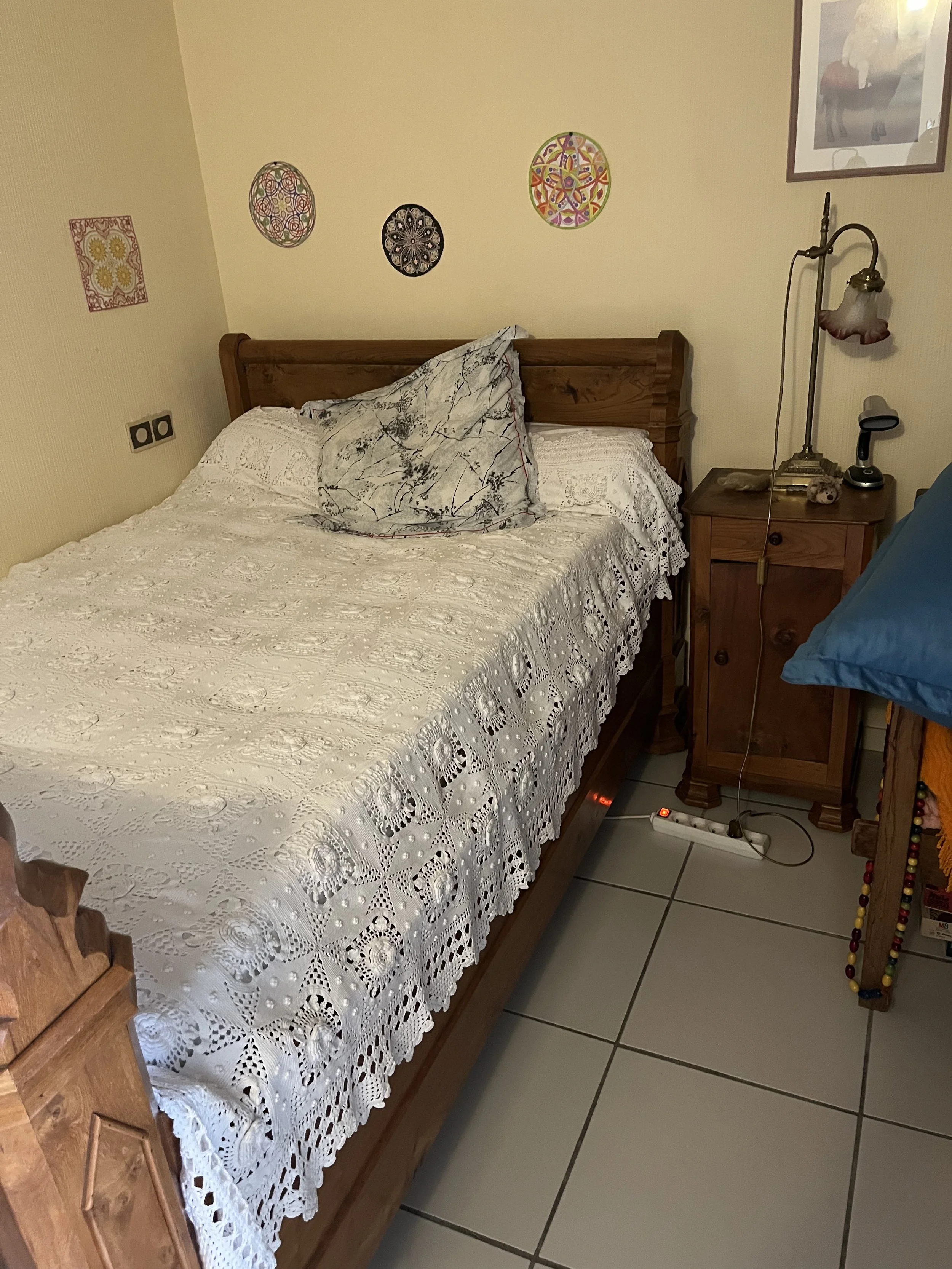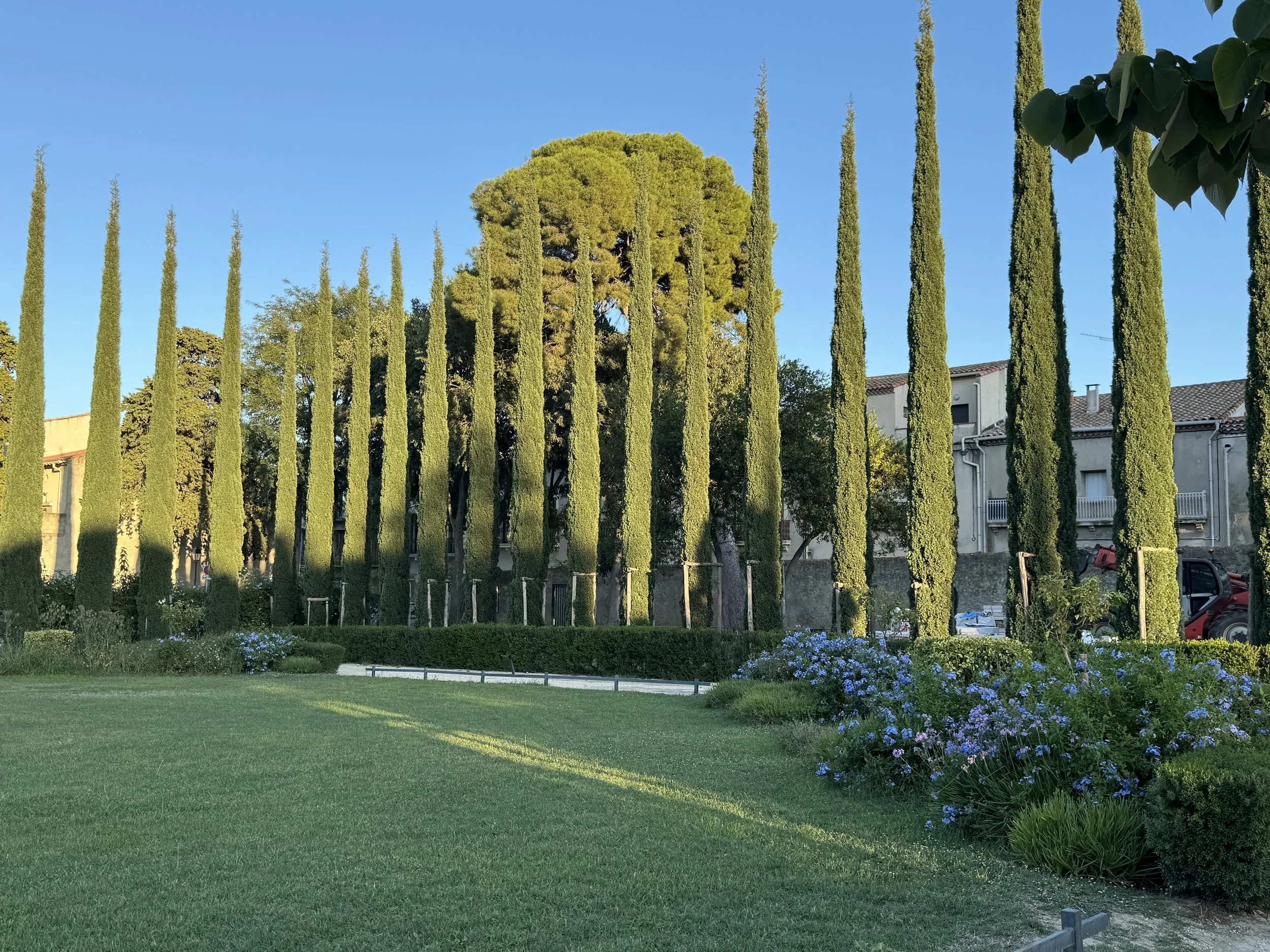The Everyday Magic of Play: How Playfulness Shapes Connection, Aging, and Joy
Why Play Matters at Every Age
This month, I find myself reflecting on something simple yet profound: the role of play in our lives.
During a recent visit to my in-laws in the South of France, I was struck by how naturally they live with play woven into their days. Now in their late 80s, they move through life with humour, tenderness, and lightness. Watching them reminded me: they are masters of play, and I had the privilege of witnessing it.
Everyday Play in Daily Life
I saw it in the banter at the weekly market and the cheeky exchanges with vendors they've known for many years. I saw it in the lighthearted teasing with their cleaning lady, and the warm, humorous rapport they share with the nurses who them visit weekly.
Their playfulness seems to be nourished by the environment they've cultivated over time. They do live in a sun-drenched southern city where the pace is slower, and the people are friendlier. Most importantly, they are rooted in relationships that nourish and sustain them with each other, with family, and with the community around them.
But the spirit of play isn't new. It's been their way of engaging with life for decades. Retirement didn't create it; it simply gave it more space to shine.
For me, living in Toronto as a working mom, life often feels busy, schedules packed, productivity prized, and moments of lightness fleeting. Witnessing my in-laws reminded me that play isn't something we outgrow. It's something we can reclaim.
What Makes Play...Playful?
Dr. Stuart Brown, psychiatrist and founder of the National Institute for Play, has studied the science and soul of play for decades. His book Play: How It Shapes the Brain, Opens the Imagination, and Invigorates the Soul reminds us that play isn't frivolous, it's foundational to wellbeing.
He identified five key qualities of play:
Purposeless: Play exists for it's own sake, not as a means to an end.
Optional: You can't force play. It shows up when we choose it.
Feels good: The pull of laughter, silliness, and lightness.
Timeless: A playful moment makes time stretch or disappear.
Messy: Play is improvisational and unpredictable, that's the magic.
As Brown writes: "The opposite of play is not work, it's depression."
Play Is Personal
One of the most powerful truths about play is that it's deeply personal.
For my mother-in-law, play begins with her rooftop garden rounds and moves into cooking family recipes, and reminiscing on cherished memories.
For my father in-law, play is social and sensory. Chatting with neighbours, joking with vendors, foraging for mushrooms, and savouring wine.
Together, they find joy in shared rituals, watching movies, retelling old stories, or simply teasing each other gently. For them, play is not an activity. It's a way of relating to themselves, to each other, and the world.
Play Helps Us Through Difficulties
My in-laws aren't immune to challenges; declining health, chronic pain, and global concerns all touch their lives. Yet they make intentional space for play.
Small playful acts don't erase hardship, but they soften it. Play offers release, lightness, and connection. It keeps them grounded in what's good.
Why Play Is Essential for Mental Health
Play is a biological need, not just a luxury. It helps us regulate emotions, build resilience, foster creativity, and deepen relationships.
As Dr. Brown reminds us: "The opposite of play is not work; it's depression."
For play to nourish us, it must be self directed and free from pressure. Genuine play fuels joy, prevents burnout, and restores energy. Without it, work and life lose their spark.
My Own Relationship With Play
Witnessing my in-laws ease with play highlighted how difficult it can feel to access my own. Like many in North America, I've been conditioned to equate productivity with worth. Rest feels lazy. Joy feels indulgent. And play? It often feels like something earned only after the "real work" is done.
But I'm learning to soften those rules. To see play not as a reward, but as a vital thread that makes life whole.
A Gentle Invitation
Let's not wait for vacations or weekends to invite play back into our lives. Instead, let's treat play as a daily practice.
Ask yourself:
What feels like play for me?
Where can I carve out moments of joy?
How can I protect playful moments as a daily essential, not as a reward?
Because play isn't about doing more, it's about making space for what makes us feel alive.
Play is more than joy, it’s part of resilience and wellbeing. If you’re navigating stress, transitions, or simply want to feel more alive, psychotherapy can help. Learn more about my services here.
With love,
Wendy Sun






